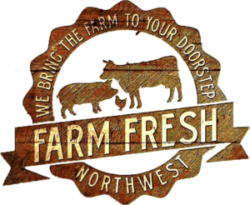In the verdant fields and rolling hills of Washington State, a quiet revolution is taking place in the realm of pork production. Pasture raised pork, once a niche market, is now gaining traction as consumers seek out healthier, more sustainable alternatives to conventionally raised meats. In this article, we’ll explore the principles and practices behind pasture raised pork in Washington State, with a focus on sustainability, animal welfare, and community engagement. farmfreshnwdelivery.com
At the heart of pasture raised pork production lies a deep commitment to sustainable farming practices that prioritize the well-being of the animals and the environment. Unlike conventional industrial farming methods that rely on confinement systems and feedlots, pasture raised pork embraces a more holistic approach, allowing pigs to roam freely in open pastures where they can graze, root, and express their natural behaviors.
In Washington State, where lush green landscapes abound, pasture raised pork thrives amidst the rich tapestry of flora and fauna. Here, farmers harness the power of regenerative agriculture, utilizing rotational grazing techniques to maintain healthy pasture ecosystems. By moving pigs to fresh paddocks periodically, farmers not only prevent overgrazing but also promote soil health, increase biodiversity, and sequester carbon—a win-win for both pigs and the planet.
Animal welfare is paramount in pasture raised pork production, with a focus on providing pigs with a stress-free and comfortable living environment. In Washington State, where the climate is temperate and the landscape diverse, pigs enjoy ample space to roam, access to fresh air and sunshine, and shelter from the elements when needed. By prioritizing the welfare of the animals, farmers ensure that the pork produced is of the highest quality, both in taste and ethics.
One of the key benefits of pasture raised pork in Washington State is its superior flavor and nutritional profile. Pigs raised on pasture have access to a varied diet of grasses, legumes, roots, and forage, which imbues the meat with a depth of flavor that is unmatched by conventionally raised pork. Additionally, pasture raised pork tends to be higher in essential nutrients such as omega-3 fatty acids, vitamin D, and antioxidants, making it a healthier choice for consumers.
Farm Fresh Northwest stands at the forefront of pasture raised pork production in Washington State, embodying the values of sustainability, quality, and community. With a network of local farmers who share a passion for regenerative agriculture and animal welfare, Farm Fresh Northwest delivers pork products of the highest caliber to consumers across the state. By supporting local producers like Farm Fresh Northwest, consumers can enjoy the peace of mind that comes with knowing where their food comes from and how it was raised.
In conclusion, pasture raised pork in Washington State represents a return to traditional farming practices that prioritize the health of the animals, the land, and the community. By embracing sustainable farming methods, respecting animal welfare, and fostering a connection to the land, farmers can produce pork that is not only delicious and nutritious but also environmentally and ethically sound. As the demand for pasture raised pork continues to grow, it’s essential to support local producers who are dedicated to upholding the values of sustainability, integrity, and community in every aspect of their operations.
